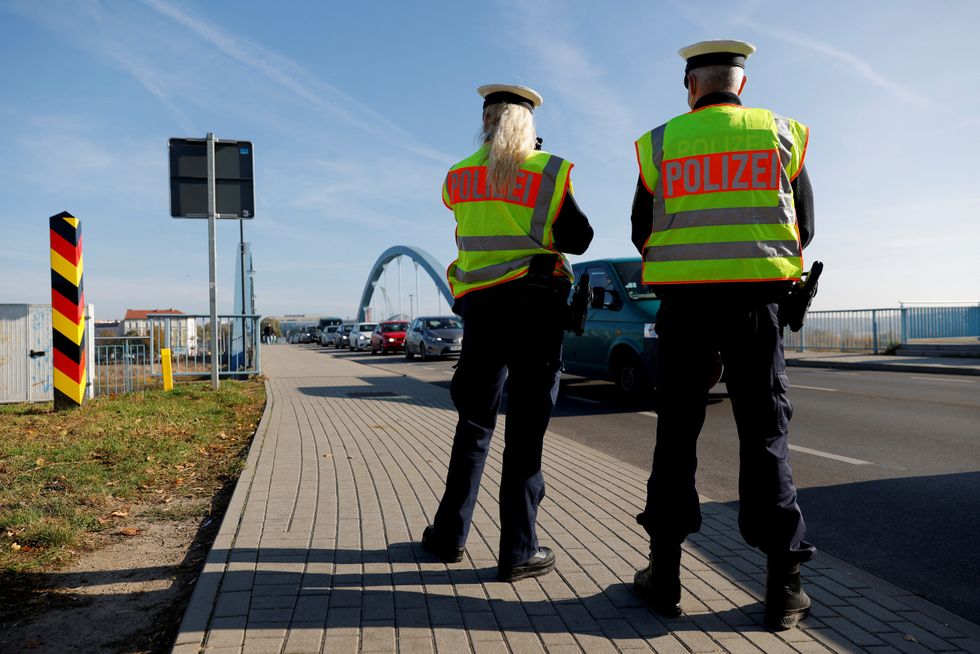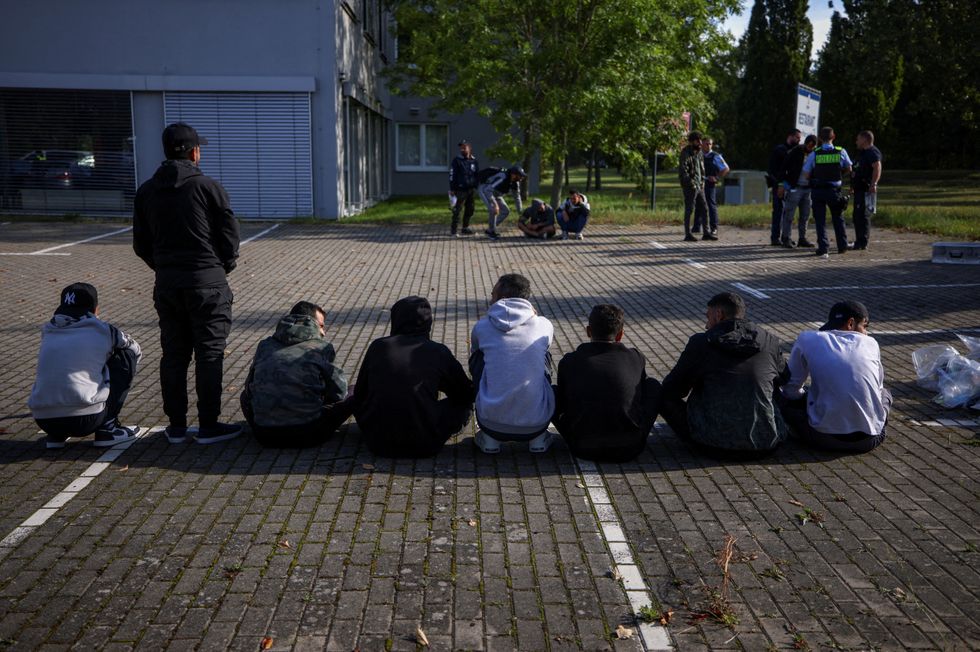German police conduct random checks at border with Austria
Reuters
Berlin has justified the measures to Brussels because of migrants causing 'persistently high overall burden on Germany'
Don't Miss
Most Read
Trending on GB News
Germany’s EU neighbours have said they will not take back rejected migrants, after the country announced harsher restrictions on frontier checks.
Interior minister Nancy Faeser has said that tighter controls at all German land borders will be introduced for six months and will stop illegal immigrants from entering the country.
The scheme represents a significant extension of controls introduced last year on Germany's borders that it shares with Poland, the Czech Republic and Switzerland.
Now, the entirety of the country’s 2,300 mile border will be covered, with Denmark, the Netherlands, Belgium, Luxembourg, France and Austria all being subject to the restrictions.
 German police conduct random checks at border with AustriaReuters
German police conduct random checks at border with AustriaReutersBerlin has justified the measures to Brussels by stating that due to the “persistently high overall burden on Germany” and “protection of internal security against the current threats of Islamist terrorism and cross-border crime”, the scheme is necessary.
It has also informed the European Commission of the plans, stating that it falls within the EU’s rules on allowing border controls to stop threats to internal security or public policy.
However, its EU neighbours do not appear so willing to accept Germany’s rejected migrants, with Gerhard Karner, the Austrian interior minister, stating that an agreement needed to be made between the nations before they took them back.
“There’s no room for manoeuvre there,” he told Germany’s Bild newspaper.
LATEST DEVELOPMENTS:

The German federal police patrols along the German-Polish border area in order to detain migrants
Reuters
Suspected illegal migrants sit on the ground after they were detained by German police
Reuters
“It’s the law. I have directed the head of the federal police to not allow any returns. Austria will therefore not accept any persons rejected from Germany.”
Poland's Prime Minister Donald Tusk has slammed Berlin’s decision and said it would be discussing the matter with other EU leaders.
“These kinds of actions are unacceptable from Poland's point of view," Tusk said.
“Rather than greater controls of our border, Poland needs greater participation of countries, including Germany, in guarding and securing the European Union's external borders.
“I have no doubt that it is the internal political situation of Germany that is causing these steps to be tightened, and not our policy toward illegal migration at our borders,” he added.
And the Czech press have also slammed the policies, stating that they oppose the Schengen agreement as the movement of people and goods to the country is now subjected to checks.

Interior minister Nancy Faeser has said that tighter controls at all German land borders will be introduced for six months
GETTYHowever, Czech Interior Minister Vít Rakušan said that the new measures are not a threat to its citizens.
“This is an extension of the current measures that have been in place at the German border for several months,” he wrote on X.
“This does not mean any fundamental change for the Czech Republic and its citizens at the moment. According to my information, random checks will continue.”
Under current European asylum rules, migrants can be returned to the country where they first entered the EU, however the consent of the origin country is required.
The move follows recent terror attacks by asylum seekers in Munich and Solingen.
“We are strengthening our security through concrete action and we are continuing our tough stance against irregular migration,” Faeser said.
“Until we achieve strong protection of the EU’s external borders, we must control our national borders even more closely. These controls also enable effective rejections. This serves to further limit illegal migration [and] to protect against the acute dangers of Islamist terror.”








